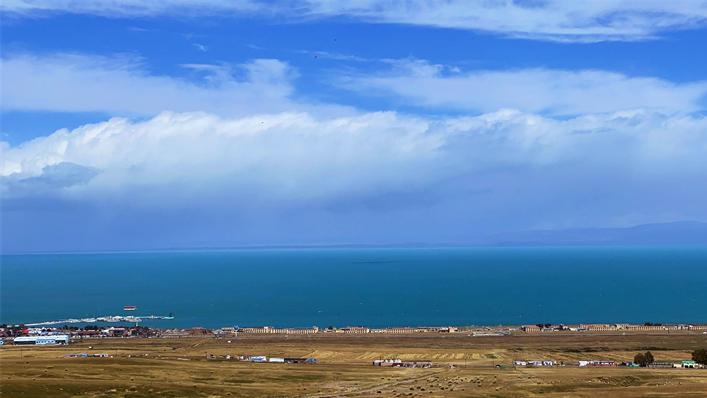Iranian officials, analysts warn of "stronger strike" in response to potential Israeli retaliation
TEHRAN, Oct. 9 (Xinhua) -- Iranian officials and analysts are signaling that any significant Israeli action against Iran would trigger a more forceful response than the recent missile strike, as regional tensions escalate amid Israeli operations in Lebanon.
On Oct. 1, Iran's Islamic Revolutionary Guard Corps fired a barrage of ballistic missiles at Israel, asserting that the strike was aimed at "strategic" sites and in retaliation for alleged Israeli assassinations of key "resistance" figures, including Hamas leader Ismail Haniyeh and Hezbollah chief Hassan Nasrallah, as well as for Israel's offensives against Lebanese and Palestinian populations.
In response to Iran's attack, Israeli Prime Minister Benjamin Netanyahu stated that Tehran had made a "big mistake," warning of possible consequences. Israeli officials have since hinted at potential military actions targeting Iran's nuclear facilities and energy infrastructure.
On this matter, Rasoul Sanaei-Rad, political deputy of the Political-Ideological Office of Iran's Supreme Leader, in a recent interview with the semi-official Fars news agency, warned Israel against attacking Iran's nuclear facilities and energy infrastructure.
Sanaei-Rad emphasized the importance of all parties adhering to established protocols concerning nuclear security, adding that targeting Iran's nuclear centers could not only alter the strategic balance but may also prompt a shift in Iran's nuclear policies, as suggested by some Iranian politicians.
He also "suggested" Israel keep its hands off Iran's oil and gas infrastructure to maintain regional energy security and ensure stable global energy prices.
"If Israel takes further actions against Iran, Tehran's response would be more decisive and crushing, and on a larger scale compared to the previous retaliatory attack," Sanaei-Rad added.
As Israel escalates its operations in Lebanon, both regional and global observers are preparing for a new and more dangerous flashpoint: a potential escalation between Iran and Israel.
Israeli media reported on Wednesday that Netanyahu, along with top officials, reached significant decisions regarding an impending Israeli attack on Iran during a meeting on Tuesday night. The Times of Israel, citing senior sources, indicated that the primary focus of Israeli retaliation would be Iranian military facilities, although this strategy may evolve.
Mostafa Khoshcheshm, a Tehran-based international affairs analyst, told state-run IRIB TV that any future Iranian action against Israel would likely involve a greater number of ballistic missiles than the previous operation and more advanced missiles would be used.
Regarding potential Israeli targets, Khoshcheshm said, "Israel has three ports, including Eilat on the Red Sea, which is already out of service, Haifa and Ashdod. Their infrastructure, refineries, and gas fields, but not citizens, could be among Iran's targets."
He noted that a successful operation would require sufficient preparations and backup, implying that it would take a "logical amount of time" for Iran to respond to a potential Israeli attack.
Iran's recent airstrike marks its second such attack on Israel this year after it fired hundreds of ballistic missiles and drones at Israel on April 13, prompting an apparent Israeli retaliatory airstrike on an airbase near Isfahan in central Iran on April 19.
Photos
Related Stories
- UN chief expresses concern over Israel's draft legislation on UN relief agency
- Israel, US blamed for prolonging Gaza conflict
- Death toll in Israeli airstrike on West Bank camp rises to 18
- 12 killed, 17 wounded in Israeli airstrikes on S. Lebanon
- Iran stands with Hezbollah, backs efforts for ceasefire in Lebanon, Gaza: FM
Copyright © 2024 People's Daily Online. All Rights Reserved.









